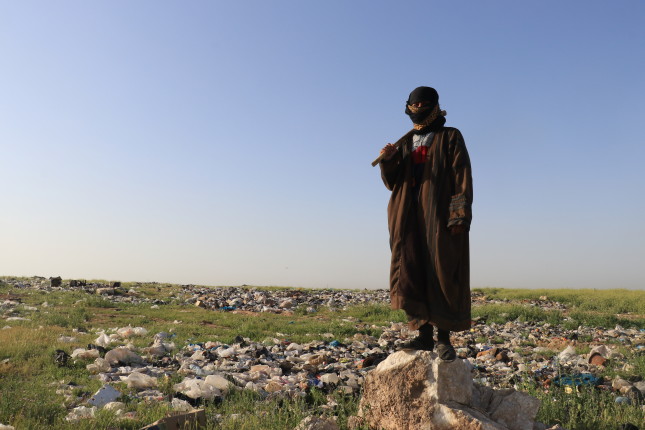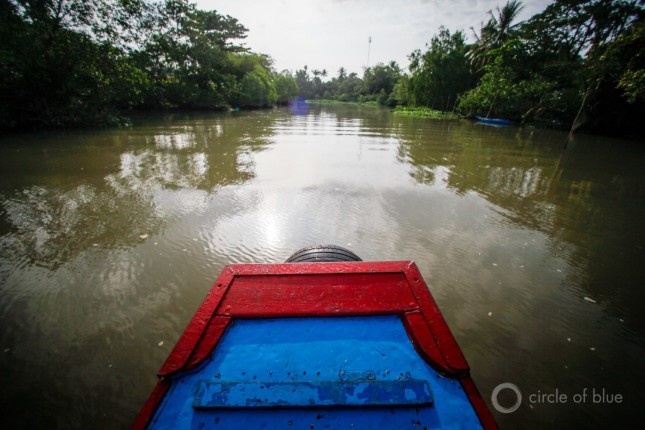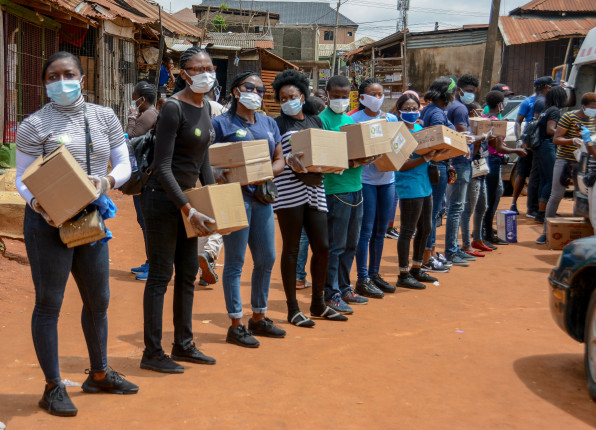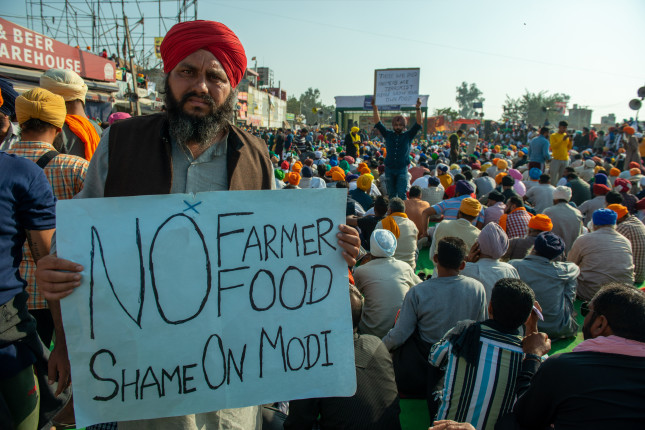-
Climate Change and Terrorism
›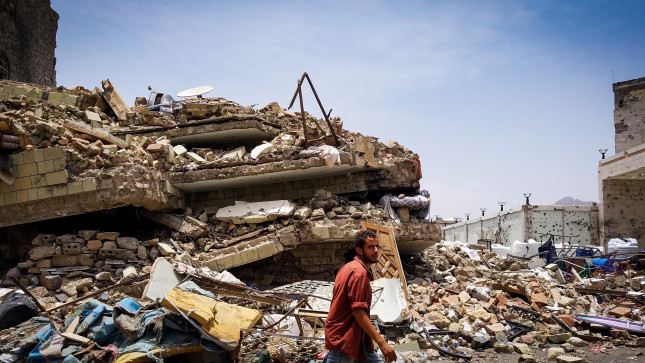
Climate change is a defining global issue of our time. In a recent address to the UN Security Council, John Kerry, the U.S. presidential envoy for climate, remarked that climate change is “the challenge of all of our generations.” An important dimension of the challenge presented by climate change concerns its implications for state and human security.
-
Improving America’s Ecological Security Requires Public-Private Partnerships
›
In January, President Biden joined other world leaders in committing to conserve 30 percent of their nations’ lands and oceans by 2030. Also known as “30 by 30,” the pledge aligns government action with the growing recognition by the intelligence community that the loss of ecosystems and biodiversity presents serious risks to the U.S. economy and national security. Risks to the U.S. include the expanded likelihood of wildlife-borne diseases spilling over into our communities, water system challenges, decreased crop production, and increased natural disasters like floods.
-
Going Big on Climate: Opportunities and Challenges Facing the New Administration
›
“With climate change, we can make no small plans—we need to go big,” said Lieutenant General Wallace Gregson (ret.), former Assistant Secretary of Defense for Asian and Pacific Security Affairs, during a recent event co-hosted by the Environmental Peacebuilding Association and Wilson Center on opportunities and challenges facing the new administration relating to the environment, peace, and conflict.
-
A Conversation with Marisa O. Ensor on Securitizing Youth and Youth’s Role in Peace and Security Agendas
› “I’ve been quite impressed by the wide diversity and complexity of young women’s and men’s engagement for peacebuilding and development often while confronting seemingly insurmountable challenges,” says Marisa O. Ensor, Adjunct Professor in the Justice and Peace Studies Program at Georgetown University, in this week’s Friday Podcast.
“I’ve been quite impressed by the wide diversity and complexity of young women’s and men’s engagement for peacebuilding and development often while confronting seemingly insurmountable challenges,” says Marisa O. Ensor, Adjunct Professor in the Justice and Peace Studies Program at Georgetown University, in this week’s Friday Podcast. -
Nature-based Solutions Vital to Mitigating Conflict-linked Environmental Damage
›
When the dust settles after wars and armed conflicts, people are eager to rebuild their lives and livelihoods in the wake of the devastation wrought upon their country. Often one issue is largely absent in post-conflict reconstruction and development planning: addressing conflict-linked destruction of the environment.
-
Four International Water Stories to Watch in 2021
›
The travails of the last year, when a bat virus infected humans and turned the world upside down, were an unfortunate reminder of the inseparable ties between society and the natural environment.
So it is with water, which will again this year direct the course of history, through events small and large.
What are the large events to pay attention to? What are the trends and flashpoints?
-
Pan-African Response to COVID-19: New Forms of Environmental Peacebuilding Emerge
›Guest Contributor // February 8, 2021 // By Elaine (Lan Yin) Hsiao, Fakunle Aremu & Ousseyni Kalilou
Early predictions about COVID-19’s impacts on Africa suggested that the continent would be a disaster zone marked by weak medical systems collapsing under strain and undemocratic states failing to provide social services to destitute populations. These predictions did not come to pass. Instead, many countries across the continent stepped up early on to join the world in curtailing the spread of COVID-19. The second order effects of the virus have been significant, however. Despite the low numbers of infections and deaths, lockdowns and the decline of a large percentage of informal trade and commerce in Sub-Saharan Africa have sent the region’s economy into recession, with increased inflation rates, widespread unemployment, and increased food insecurity. It’s within this context that collaboration (internationally and within the continent, between governments, the private sector, and local communities) to protect the environment—and by extension enhance livelihoods, promote sustainable development, and achieve enduring peace—has taken new forms.
-
Zafar Imran, Le Monde diplomatique
Climate Change in the Indian Farmers’ Protest
›
The ongoing farmers’ movement in India has taken the world’s largest democracy by storm. Hundreds of thousands from all over the country have laid siege to New Delhi for more than two months. As both the protestors and the government dig their heels in, the chances of confrontation and violence are increasing by the day.
Showing posts from category environmental security.


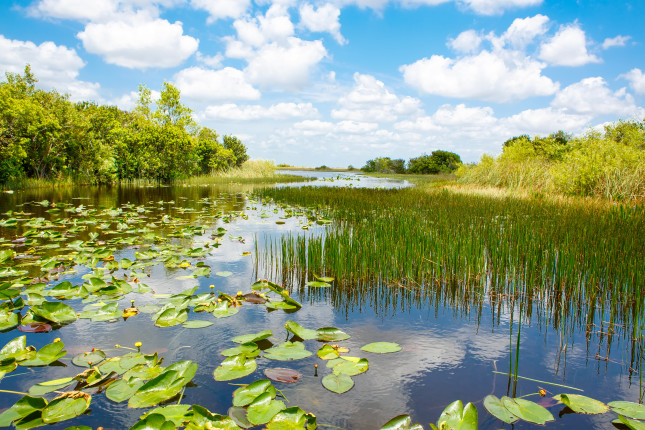
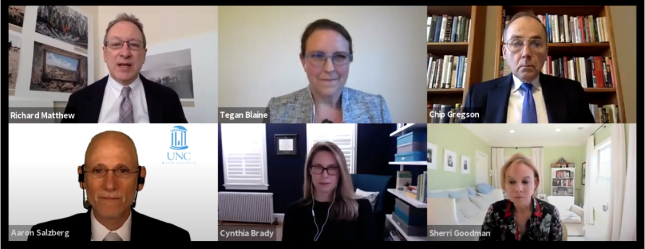
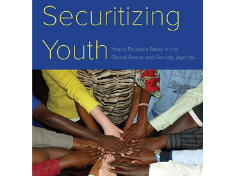 “I’ve been quite impressed by the wide diversity and complexity of young women’s and men’s engagement for peacebuilding and development often while confronting seemingly insurmountable challenges,” says Marisa O. Ensor, Adjunct Professor in the Justice and Peace Studies Program at Georgetown University, in this week’s Friday Podcast.
“I’ve been quite impressed by the wide diversity and complexity of young women’s and men’s engagement for peacebuilding and development often while confronting seemingly insurmountable challenges,” says Marisa O. Ensor, Adjunct Professor in the Justice and Peace Studies Program at Georgetown University, in this week’s Friday Podcast.